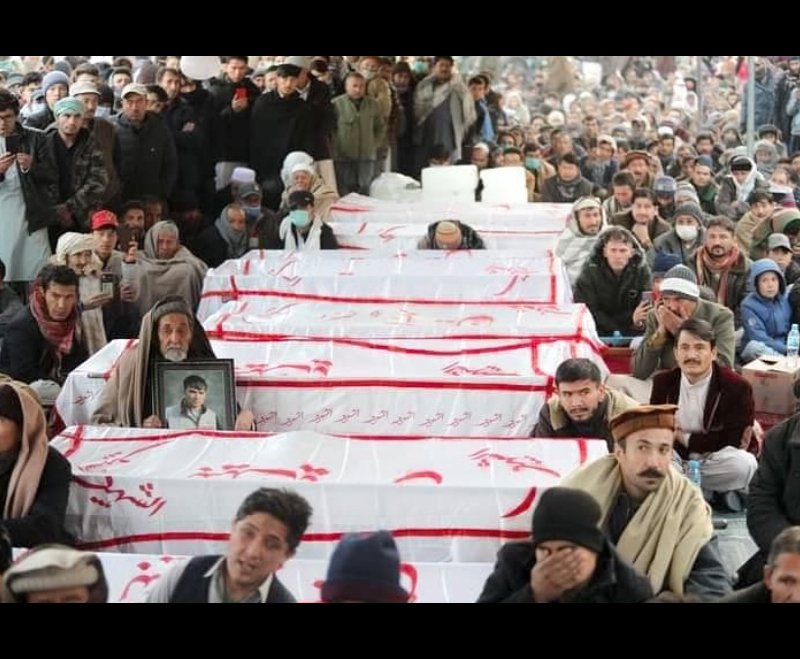
HAZARA KILLINGS IN PAKISTAN – “We are the Walking Dead”
Dr Ilham Gharjie describes the plight of Hazaras as “Hazara’s have been living in a state of fear and terror since 1890. That‘s 130 years of persecution.” After the Genocide of Hazaras in the late 19th century, many Hazara’s were displaced. Some sought refuge in Quetta, modern-day Pakistan. In their more recent history, the Hazara community has faced endless persecution in Pakistan for almost two decades. They have been targeted by different terrorist groups, and the silence from the international community is defeaning. According to a report by Pakistani’s National Commission of Human Rights, more than 2000 Hazaras have been killed in Pakistan in the last 14 years.
Over the last 20 years there have been countless attacks against the Hazara community in Quetta, Pakistan and other parts of the country. Many important Hazara figures have been assassinated by Lashkar e Jangvi and other terrorist groups that operate within Pakistan during this time. The cycle of violence towards the Hazara community started in the early 2000s, and in the last decade or so the violence against the Hazara community has escalated. Attacks have included the gunning down of groups of civilians, suicide bombings, and targeted killings of Hazara individuals as I have already mentioned. “Virtually all segments of the Hazara community are under attack”
“In 2012 there was a significant spike in the number of killings of members of the Shia community across Pakistan and of the Hazara community in particular in Balochistan.”
These attacks on the Hazara community have had significant impact on the social, cultural and economic life of the community. “Since 2012, Quetta’s Hazara community have been compelled to limit their activities to the Hazara dominated neighbourhoods of Marriabad and Hazara Town.”
As a result of these attacks on the Hazara community, there are soldiers and security checkpoints in every part of the Hazara Town district of the city to ensure their safety.
Although this has had an adverse effect on the community, as it feels though they are living under siege according to a Hazara lawyer; Sardar Sahil who notes that “Though all these checkpoints were established for our security, we feel we were ourselves also cut off from other community.
Timeline:
March 2004: An Ashura procession was attacked in Quetta, which left 24 people dead, and many injured. The attackers first threw a hand grenade, followed by firing as the procession reached the main business district of the city. It was reported that most victims were Hazara.
January 2009: Chairman of the Hazara Democratic Party, Hussain Ali Yousafi was killed.
September 2009: Engineer Ahmed Ali Najaf was killed at his workplace.
October 2009: Walayat Hussain, a Hazara lawyer was killed.
September 2010: A suicide bombing during a rally killed around 50 people and injured many others. Later, the Taliban claimed responsibility for the attack.
October 2010: 4 Hazaras were abducted and killed for ransom.
November 2010: Haji Idrees was abducted and killed alongside his bodyguard.
May 2011: 8 people including children were killed in a rocket and gun attack which targeted Hazaras in a park. Lashkar-e-Jhangvi claimed responsibility for the attack.
July 2011: 11 Hazaras, including one woman, were killed when a Suzuki can was attacked on Spini Road in Quetta.
June 2012: 14 people, including two policemen and a woman were killed and many others injured in a suicide attack on a bus carrying pilgrims from Iran.
August 2012: 3 people killed in a taxi when gunmen opened fire on them when going from Mari Abad to Hazara Town.
February 2013: At least 84 people were killed and over a hundred wounded when a large blast ripped through Quetta near a market at the Kirani Road, which is close to Hazara Town. Lashkar-e-Jhangvi claimed responsibility for the heinous act.
January 2014: Some 30 Hazaras were killed in a suicide bombing attack in Mastung on a bus carrying pilgrims coming back from Iran. The attacker struct the bus from the border town in Taftan, Quetta. Lashkar-e-Jhangvi claimed responsibility for the attack.
January 2021: At least 11 coal miners – all members of the Hazara Shia community were kidnapped and slaughtered in Macch Town in Balochistan.
(Research by – @kohnahdeh on Instagram)
For those, like our honorable Prime Minister, Imran Khan, that might want to pass off these killings as merely “the neighbour trying to incite sectarian differences” – might want to take a look at the timeline above.
Hundreds of members of Pakistan’s ethnic Hazara community have held a protest against the killing of 10 coal miners in a targeted attack in the southwestern province of Balochistan, refusing to bury their dead until the government meets their demands to ensure their safety against such heinous targeted killings.
Protesters gathered on a highway in the western part of the provincial capital of Quetta on Monday to protest against the killing of the miners a day earlier, the coffins of their relatives laid out on the ground before them. This genocide of the Shia Hazara community needs to be brought to an end through judicial means. Let them not become the walking dead.


